This article was co-authored by Laura Marusinec, MD. Dr. Marusinec is a board certified Pediatrician at the Children's Hospital of Wisconsin, where she is on the Clinical Practice Council. She received her M.D. from the Medical College of Wisconsin School of Medicine in 1995 and completed her residency at the Medical College of Wisconsin in Pediatrics in 1998. She is a member of the American Medical Writers Association and the Society for Pediatric Urgent Care.
There are 18 references cited in this article, which can be found at the bottom of the page.
wikiHow marks an article as reader-approved once it receives enough positive feedback. In this case, 83% of readers who voted found the article helpful, earning it our reader-approved status.
This article has been viewed 484,963 times.
There are some common hygiene practices that you should take part in on a regular basis. Although you may think you follow common hygiene practices, there may be some of these activities that you might forget to do. If you follow a few simple steps, you can avoid common hygiene mistakes and smell good, stay healthy, and feel better every day.
Steps
Cleaning Your Body
-
1Brush your teeth. You should brush your teeth multiple times a day. Most dental hygiene experts suggest brushing two times daily, after breakfast and before you go to bed. This will help prevent tooth decay, gum disease, and bad breath.[1] To make sure that your overall oral hygiene is at its best, you should also floss daily.
- You should try to use toothpaste with fluoride because it will help strengthen your teeth and promote a healthy mouth. You can also use mouthwash with fluoride as well.[2]
- When you brush your teeth, you should also clean the rest of your mouth. Ignoring your tongue, the roof of your mouth or the insides of your cheeks can leave harmful bacteria in your mouth that can cause hygiene problems. Run your brush over all the surfaces in your mouth and scrub the surface of your tongue with the bristles every time your brush your teeth.
- Replace your toothbrush every three months. This will ensure that your brush is the most efficient it can be for the best oral hygiene possible.[3]
- See your dentist regularly for check-ups. Most dentists recommend twice a year, but your dentist can recommend a schedule that's best for you.
-
2Floss daily. Along with brushing your teeth, you should floss every day. This will help combat bad breath and cavities. Each day, you should pull floss between each of your teeth and run it along the edges. Make sure you reach your back teeth as well.
- Don't snap the floss against your gums. This may cause them to bleed, which you don't want.
- If your gums always bleed when you floss, you may have an underlying dental issue. You should see your dentist.
Advertisement -
3Use mouthwash. One way to ensure that you have extra minty breath all day long is to use mouthwash. It helps prevent bacteria and can help fight cavities as well. Swish it around your mouth after each time you brush. You can also use it after meals if you can't brush your teeth to help get rid of odors lingering in your mouth.
- You should never use mouthwash to replace brushing your teeth or prevent underlying causes of bad breath. It is only used to help add a minty smell to your breath and help your other oral hygiene methods.[4]
-
4Wash your hands. To keep up personal hygiene, you need to make sure that you wash your hands often. Not washing hands often enough is one of the most common hygiene mistakes people make. Common situations where you need to wash your hands are after you go to the restroom, after you sneeze, before you prepare food or drinks, before you eat, and after handling objects that are handled by many others. This helps keep you clean as well as stop the spread of germs and bacteria that lead to illness.
- When washing hands, you should lather your soap covered hands in warm water for at least 20 seconds. Make sure to rub in between your fingers and around your nails. This ensures that the soap has time to kill any germs on your hands. You should then rinse the soap off with warm water and dry them with a disposable towel or use an air dryer.[5]
- If you want to further prevent the spread of germs, you should sneeze into your elbow. This helps cover more of your nose and mouth and keep the germs from your hands.
-
5Use flushable wipes. Disposable wipes are not just for babies anymore. If you are feeling slightly unfresh, you can use one of these wipes to clean yourself if you cannot get to a shower. They are also good to use if you have to defecate and want to freshen up afterwards.
- You can find these at the grocery or general stores. They are in the adult hygiene aisles.[6]
-
6Shower frequently. To keep yourself clean, fresh, and smelling pleasant, you should shower or take a bath daily or every two out of three days. This is the best way to prevent unnecessary body odors as well as prevent the build up of bacteria or germs on your skin. There are some recent studies that suggest that taking a day off from showering every few days is healthy for the skin and helps promote healthy bacteria growth on your skin. Make sure you wash every part of your body, including every part of your feet and behind your ears.
- If you go to the gym, commute on public transit or come into contact with sick people daily, you should shower every day to avoid the spread of germs and to maintain cleanliness.[7]
- Make sure you wash your belly button. It may be an area that you forget about, but numerous odor-causing bacteria can grow there.[8]
- If body odor is a constant concern for you, ask your doctor about an antibacterial body wash.
-
7Shampoo your hair. You should wash your hair 2-3 times a week. For most people, it can be harmful to your hair if you wash it every day. If you wash it daily, you can wash out the natural oils in your hair, causing it to break and become damaged. If you have excessively oily hair, however, it may be necessary to wash your hair daily.
- The amount of times a week that your hair should be washed can be different for every person. Be aware of what your hair smells like and pay attention to how oily it gets. Keep a check on your hair to assess how often you should wash it.[9]
- If you work out, do sporting events or take part in any other activity that causes your scalp to sweat profusely, you should wash your hair more often.
-
8Cleanse your face. As part of a good overall hygiene routine, you should wash your face every morning and every night. This helps get all the impurities off of your face from the day and any oil that accumulated on your face overnight. It also helps you remove any makeup, moisturizer, or sunscreen that you may have put on your face throughout the day. Washing your face prevents acne and will give you a clean, brighter appearance every day.
- Make sure you pick the right cleanser for you. Not every person's skin is the same, so try a few different kinds until you find the cleanser that works for you. If you need some help, talk to your doctor or pharmacist, who can help you find the right cleanser for your skin.
- You should moisturize after your wash your face. This will help prevent dry, irritated skin and promote skin health.[10]
-
9Change your feminine products often. If you are a female and you are on your period, you need to change your feminine products (such as pads or tampons) often. If you do not, this may lead to spills and leaks on yourself and your underwear. If this happens, you should wash yourself or find some kind of wipe to help clean you until you can shower.
- Changing your products frequently will make you feel cleaner and help prevent odors.
- If you find that you smell slightly during your period, you can get feminine deodorizing sprays that are specifically designed for these situations. Apply them according to the instructions on the bottle. Don't apply sprays directly to your genital area, as they can cause irritation.
Preventing Odors
-
1Use a deodorant or antiperspirant. To avoid smelling when your body naturally sweats every day, you should wear deodorant. This will help cover up and block the musty smell of sweat and keep you cleaner. You can also buy antiperspirant, which helps prevent you from sweating and dries up the sweat when you do. Many brands offer a combination antiperspirant/deodorant.
- There are many different types of deodorant and antiperspirant, some targeted to girls and some targeted to boys. You can pick whichever works best for you. Some scents may be too overbearing or not work well with your body chemistry. Just keep trying until you find one that is subtle, keeps your dry, and makes you smell good.[11]
- If you have trouble with excessive sweating, or you continue to have body odor problems despite good hygiene, talk to your doctor. You may have an underlying condition that requires treatment.
-
2Avoid overly fragrant scents. You want to smell good, but it is just as bad to smell too much like perfume or cologne. When you pick a fragrance, you should find a scent that is pleasing, but not overwhelming. If it is stronger than some, you should apply it lightly, putting on just enough for people to smell it but not for it to be overpowering.[12]
- Don't use sprays to cover up body odor smells. They should be used to make you smell nice, but not to try to cover up body smells. If you are experiencing body odor, you should find the cause and take care of it instead of trying to cover it up.
-
3Wash and change your clothes. In order to promote good personal hygiene, you should change your clothes daily. You should also wash your clothes often to ensure they are clean and smell fresh. Most clothes can be worn at least two times before you wash them, with the exception of socks and underwear. However, if you think that your clothes have an unpleasant smell, do not wear them without washing them first.[13]
- Any clothes you wear to the gym, while playing sports, or during any other activity where you sweat a great deal should always be washed after one use.
-
4Change your sheets weekly. Just like you need to change your clothes often, you need to change your sheets. You sweat at night and loose dead skin cells, and they can build up on your sheets over time. If you change your sheets frequently, you don't run the risk of sleeping in your dead skin every night or transferring the sweat smells from previous nights onto your skin while your sleep.
- You should change your pillowcase more often. Your face has more oils and you may also drool overnight, which also builds up on your pillows as well.[14]
-
5Use foot powder. Smelly, sweaty feet can also promote infections like athlete's foot.[15] Using a drying or an anti-fungal foot powder on your feet and in your shoes can help your feet stay drier and germ-free.
-
6Watch what you eat. Certain foods and beverages can cause body odor. Avoid foods with strong odors, such as garlic or onions, if you need to smell fresh. If you enjoy these foods, make sure to brush your teeth or rinse with mouthwash after eating if you're going to be in public.
Practicing Personal Grooming
-
1Clip your nails. Having poorly groomed nails can cause dirt and germs to get trapped underneath the nail beds. This is unhygienic and does not promote general cleanliness. You should cut your nails with manicure scissors or clippers whenever they are too long, jagged, or misshapen.
- You should also try to keep your nails as dry and clean as possible. You can spread infection otherwise and bacteria can grow in constantly moist nails.
- To help your nails become healthier, you should moisturize your nails frequently by rubbing lotion into your cuticles and nail beds.[16]
- Don't cut or trim your cuticles. They help protect the nail bed.[17]
-
2Brush your hair. To give yourself a put together appearance, you should brush your hair daily. This removes snares and rats from your hair and makes it looks smooth and healthy. It also has the added benefit of spreading natural oils throughout your hair, which promotes hair health. It also cleans and stimulates the scalp.
- Make sure your don't brush your hair too much. This can cause breakage and actually do more harm than good for your hair.
- If you have natural hair, use your fingers or a wide-toothed comb to detangle before going to the brush. This will help avoid breakage.[18]
-
3Shave certain areas. Having excessive body hair in certain areas can cause body odor or make you look unkempt. Shaving or maintaining your body hair can be an effective hygiene technique because it allows more air to reach the skin, which reduces the amount of odor that is held in the area. It also has the benefit of highlighting certain areas if your body hair is more sculpted or clean shaven. However, shaving is a personal choice, and you should choose what you're comfortable with.[19]
- Common areas to shave or maintain are the underarms, the chest, the legs, the genital region, and the face. Shaving under the arms and shaving or maintaining hair in the genital region helps reduce odors. These areas are known to sweat profusely and the musty smell can build up in the hair if it is not properly maintained.
- Maintaining or shaving chest, leg, and facial hair is an option, but is not necessary if you don't feel comfortable with it.
- Shave gently with the "grain" (i.e., shave in the same direction the hair is growing). Use shave gel or foam to avoid irritating the skin.[20]
-
4Pluck unwanted hair. There are some areas of the body that grow hair that isn't necessarily thick enough to shave. In these cases, you may need to pluck the hair to maintain your personal hygiene. Common areas where these kinds of hairs may arise are on the cheeks, the neck, and the eyebrows. There may also be cases where a dark stray hair may grow on any portion of the body.
- Both men and women have this problem. The areas where the hair grows may be different, but the general need for personal grooming is the same.
- To pluck the unwanted hair, use tweezers to grasp the hair tightly and pull it out. Continue until all the unwanted hair is gone.[21]
References
- ↑ http://www.health.gov.au/internet/publications/publishing.nsf/Content/ohp-enhealth-manual-atsi-cnt-l~ohp-enhealth-manual-atsi-cnt-l-ch3~ohp-enhealth-manual-atsi-cnt-l-ch3.7
- ↑ http://www.colgate.com/app/CP/US/EN/OC/Information/Articles/Oral-and-Dental-Health-Basics/Oral-Hygiene/Oral-Hygiene-Basics/article/What-is-Good-Oral-Hygiene.cvsp
- ↑ http://www.ada.org/en/about-the-ada/ada-positions-policies-and-statements/statement-on-toothbrush-care-cleaning-storage-and-
- ↑ http://www.ada.org/en/science-research/ada-seal-of-acceptance/product-category-information/mouthrinses
- ↑ http://www.ab.ust.hk/hseo/sftywise/200508/page4.htm
- ↑ http://www.primermagazine.com/2011/learn/15-hygiene-habits-that-you-shouldnt-miss-in-your-daily-routine
- ↑ http://www.med-health.net/How-Often-Should-You-Shower.html
- ↑ https://www.theatlantic.com/health/archive/2012/12/1-458-bacteria-species-new-to-science-found-in-our-belly-buttons/266360/
- ↑ http://www.npr.org/templates/story/story.php?storyId=102062969&ft=1&f=1007
- ↑ https://www.aad.org/stories-and-news/news-releases/proper-skin-care-lays-the-foundation-for-successful-acne-and-rosacea-treatment-
- ↑ http://kidshealth.org/teen/your_body/take_care/hygiene_basics.html#
- ↑ http://www.artofmanliness.com/2009/09/17/keeping-it-fresh-avoiding-bad-breath-body-odor-and-cheap-cologne/
- ↑ http://www.artofmanliness.com/2009/09/17/keeping-it-fresh-avoiding-bad-breath-body-odor-and-cheap-cologne/
- ↑ http://www.primermagazine.com/2011/learn/15-hygiene-habits-that-you-shouldnt-miss-in-your-daily-routine
- ↑ https://www.mayoclinic.org/diseases-conditions/athletes-foot/symptoms-causes/syc-20353841
- ↑ http://www.mayoclinic.org/healthy-lifestyle/adult-health/in-depth/nails/art-20044954
- ↑ https://www.aad.org/dermatology-a-to-z/health-and-beauty/every-stage-of-life/children/teaching-healthy-nail-care
- ↑ http://www.curlynikki.com/2012/07/best-detangling-tips-tools.html
- ↑ http://www.pamf.org/teen/health/skin/pubichairremoval.html
- ↑ http://www.pamf.org/teen/health/skin/pubichairremoval.html
- ↑ http://www.aafp.org/afp/2002/1115/p1913.html
About This Article
Avoiding the most common hygiene mistakes takes little effort and will make you much healthier. Remember to wash your hands before you eat or touch food, after sneezing, and after touching objects that other people have used, so you'll stop germs spreading. Wash your clothes after wearing them twice or just once if you exercise in them. Don’t forget to wash your bedsheets every week, since you sweat in your sleep too. It’s also important to clip your nails whenever they get long, which prevents bacteria and dirt from building up underneath them. For more advice from our Medical co-author, including how to take care of your teeth and gums, read on!
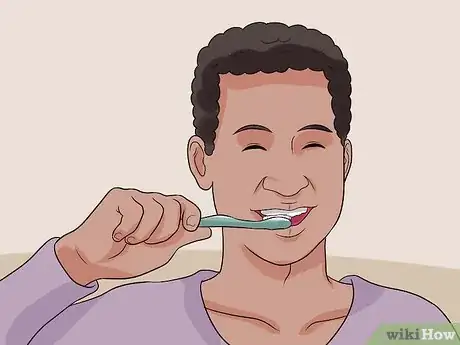
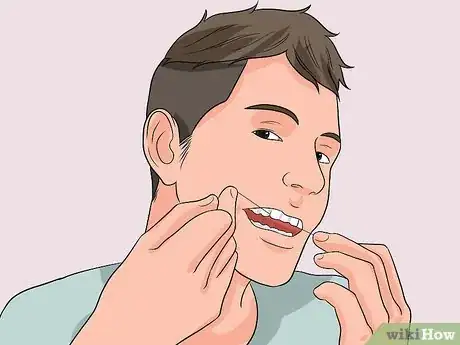
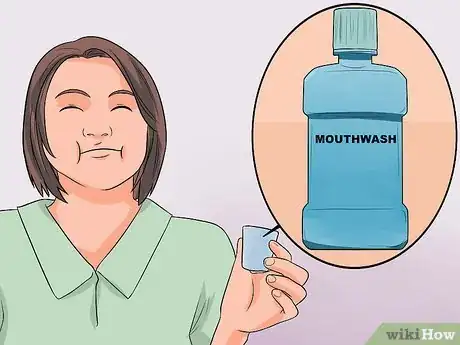

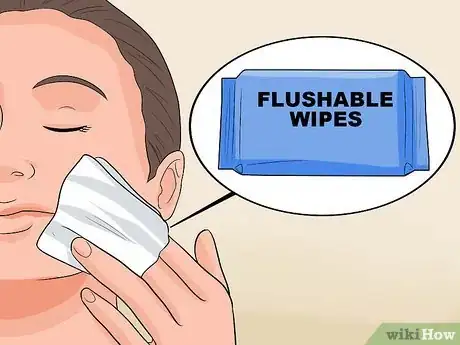
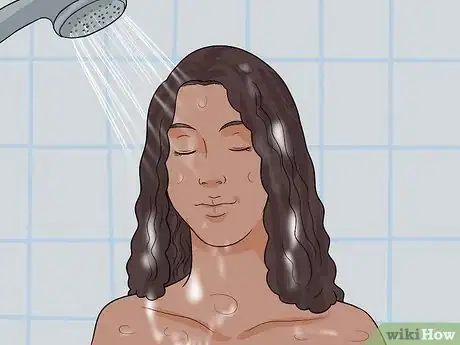
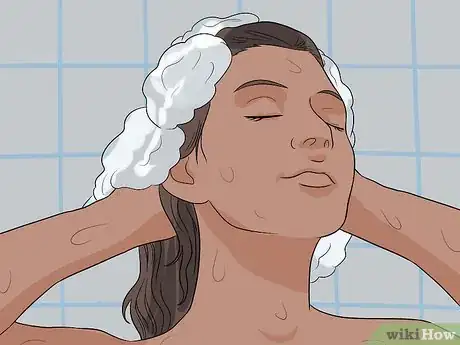
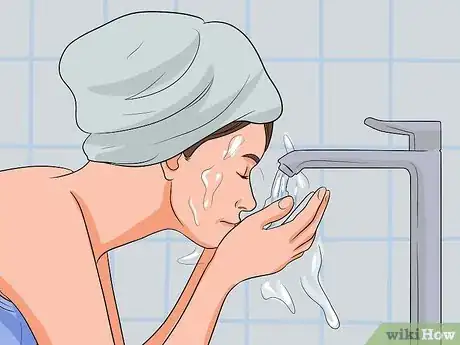
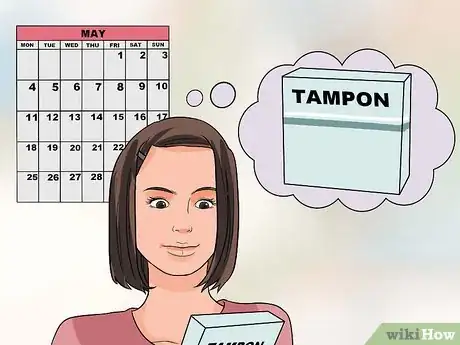
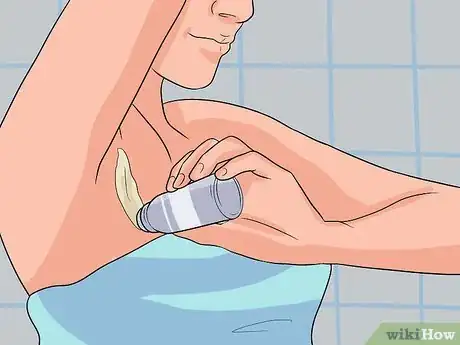
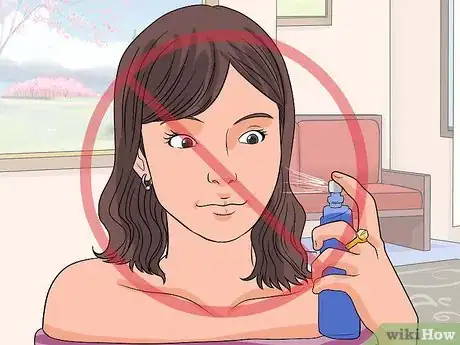

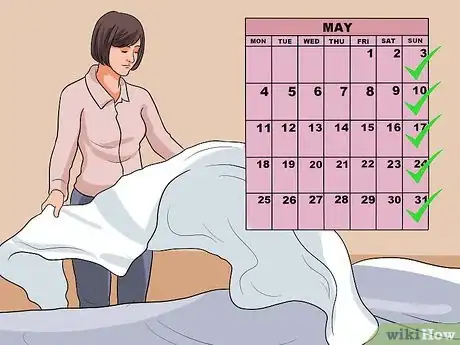
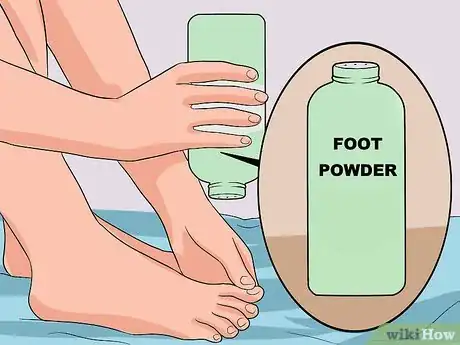
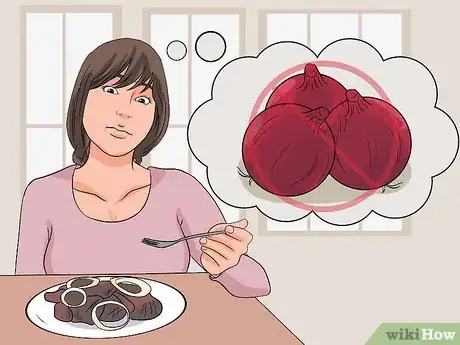
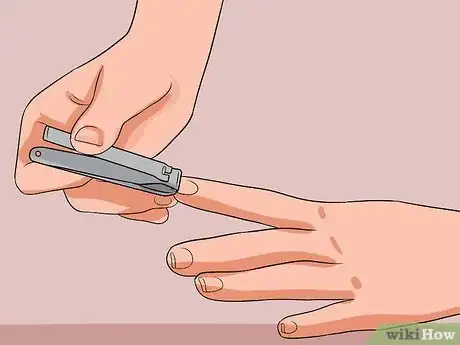
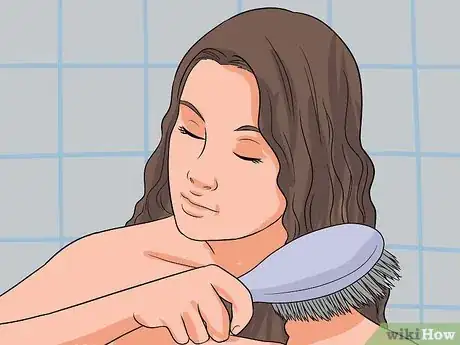
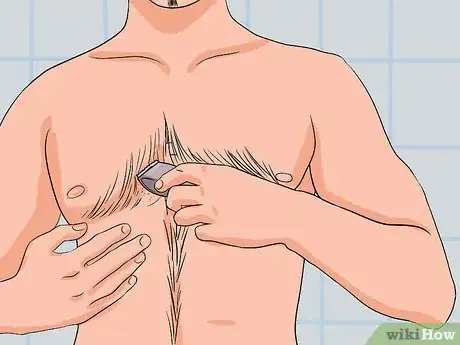
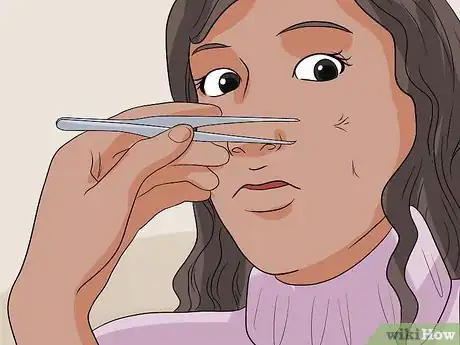

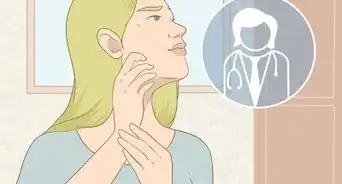
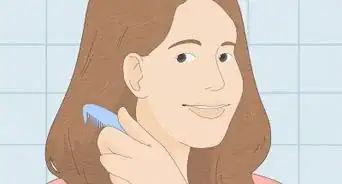
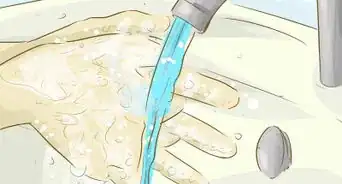

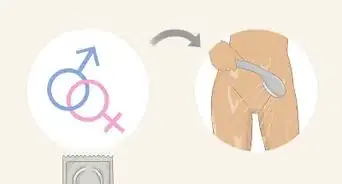


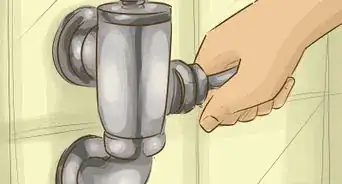

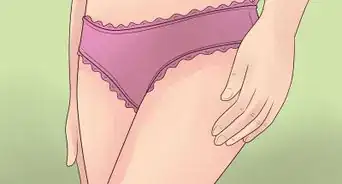

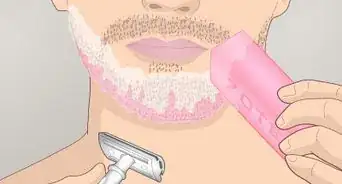













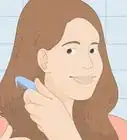




































Medical Disclaimer
The content of this article is not intended to be a substitute for professional medical advice, examination, diagnosis, or treatment. You should always contact your doctor or other qualified healthcare professional before starting, changing, or stopping any kind of health treatment.
Read More...